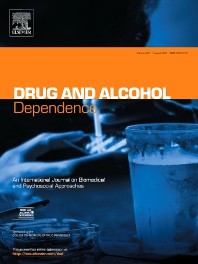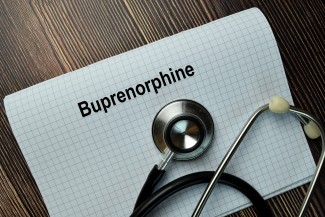Search
Social Determinants & Substance Use: A Perspective Beyond the Policy 'Silo' Pragmatics
Social Determinants & Substance Use: A Perspective Beyond the Policy 'Silo' Pragmatics - This paper (synoptic version, peer reviewed and published in Journal of Global Drug Policy & Practice) is a review of and research into the social...
Alcohol and self-harm: A qualitative study
Executive Summary
This qualitative study was commissioned by Alcohol Change UK in Wales to explore how and why alcohol and self-harm are related, and how alcohol, self-harm, and related services, are experienced and understood. Eleven...
Periods of altered risk for non-fatal drug overdose
The risk of an individual overdosing is influenced by a range of, often overlapping circumstances. Factors such as incarceration, mental and physical health conditions, and the treatments prescribed for these conditions can all affect the...
Reprint of: Biotechnologies and the future of opioid addiction treatments
Biotechnological treatment, including addiction treatment, is the way of the future. Researchers and pharmaceutical companies praise depot injections, agonist/antagonist implants, deep brain stimulation, and hapten conjugate vaccines as...
Identifying content-based engagement patterns in a smoking cessation website and associations with user characteristics and cessation outcomes: a sequence and cluster analysis
Tobacco smoking is the greatest cause of sickness and early death worldwide, with 8 million people dying each year from a smoking-related condition. The use of pharmaceutical or behavioural assistance improves smokers' chances of quitting...
The link between reducing pain medication, overdose and mental health crisis
In response to the concerning numbers of opioid-related deaths in the US, there has been a recent focus on opioid prescribing trends, which has shown an increase in opioid tapering among patients prescribed long-term opioid therapy. However...
The impact of COVID-19 on drug use and harm reduction programming in the Middle East and North Africa (MENA) region: a regional consultation of stakeholders and people who use drugs
COVID-19 (SARS-CoV-2) was classified a pandemic on March 11, 2020, with early reports of the disease occurring in the Middle East and North African (MENA) area. On January 2021, the World Health Organization Eastern Mediterranean Regional...
Addressing long overdue social and structural determinants of the opioid overdose crisis: Drug and Alcohol Dependence Special Issue
This special issue addresses a rapidly growing area of research with a pressing public health need, the social structure of opioid use.
Specifically, this issue compiles original articles that apply theoretical and empirical frameworks to...
Massive open online course for Brazilian healthcare providers working with substance use disorders: Curriculum design
Abstract
Background:
Interpersonal and technical skills are required for the care of people living with substance use disorders. Considering the applicability and usability of online courses as continuing professional education...
Gender disparities in opioid treatment progress in methadone versus counselling
The high dropout rate (75%) in opioid use disorder (OUD) treatment among women and racial/ethnic minorities in the United States necessitates a better knowledge of the factors that contribute to treatment success. While therapy and...
High-dose buprenorphine induction in the emergency department for treatment of opioid use disorder
In response to the rising efficacy of the illicit opioid drug supply and often observed delays in access to follow-up therapy, emergency departments (EDs) occasionally utilize a high-dose buprenorphine induction method for the treatment of...
Variation in brief treatment for substance use disorder: a qualitative investigation of four federally qualified health centres with SBIRT services
Brief treatment (BT) or regular outpatient alcohol use or substance use disorder (SUD) treatment is a key element of the Screening, Brief Intervention, and Referral to Treatment (SBIRT) model. It can be an effective, short-term, and low...
Implementation of tobacco control measures in the Gulf Cooperation Council countries, 2008–2020
Framework Convention on Tobacco Control (FCTC) was developed by the World Health Organization (WHO) to assist nations in reducing the demand and supply of tobacco. In 2020, 182 nations joined the FCTC, approving to implement the recommended...
High-dose buprenorphine induction in the emergency department for treatment of opioid use disorder
Abstract
Importance: Emergency departments (EDs) sporadically use a high-dose buprenorphine induction strategy for the treatment of opioid use disorder (OUD) in response to the increasing potency of the illicit opioid drug supply and...
Reporting treatment fidelity in behavioral tobacco treatment clinical trials: scoping review and measurement recommendations
Abstract
Introduction:
Adoption of rigorous standards for reporting treatment fidelity is essential for advancing discovery, validation, and implementation of behavioral treatments. Whereas the NIH Behavior Change Consortium (BCC)...
Is telemedicine the answer to rural expansion of medication treatment for opioid use disorder? Early experiences in the feasibility study phase of a National Drug Abuse Treatment Clinical Trials Network Trial
Abstract
Telemedicine (TM) enabled by digital health technologies to provide medical services has been considered a key solution to increasing health care access in rural communities. With the immediate need for remote care due to the...
Plausibility of patient-centred care in high-intensity methadone treatment: Reflections of providers and patients
Abstract
Background: Patients with opioid use disorder (OUD) often have complex health care needs. Methadone is one of the medications for opioid use disorder (MOUD) used in the management of OUDs. Highly restrictive methadone treatment...
Development of an unannounced standardized patient protocol to evaluate opioid use disorder treatment in pregnancy for American Indian and rural communities
Abstract
Background: Opioid use disorder (OUD) disproportionately impacts rural and American Indian communities and has quadrupled among pregnant individuals nationwide in the past two decades. Yet, limited data are available about access...
Reimagining brief interventions for alcohol: Towards a paradigm fit for the twenty first century?
Abstract
Background: There is no longer support for the idea that brief intervention programmes alone can contribute meaningfully to the improvement of population health relating to alcohol. As a result, calls for major innovations and...
Share the Knowledge: ISSUP members can post in the Knowledge Share – Sign in or become a member






